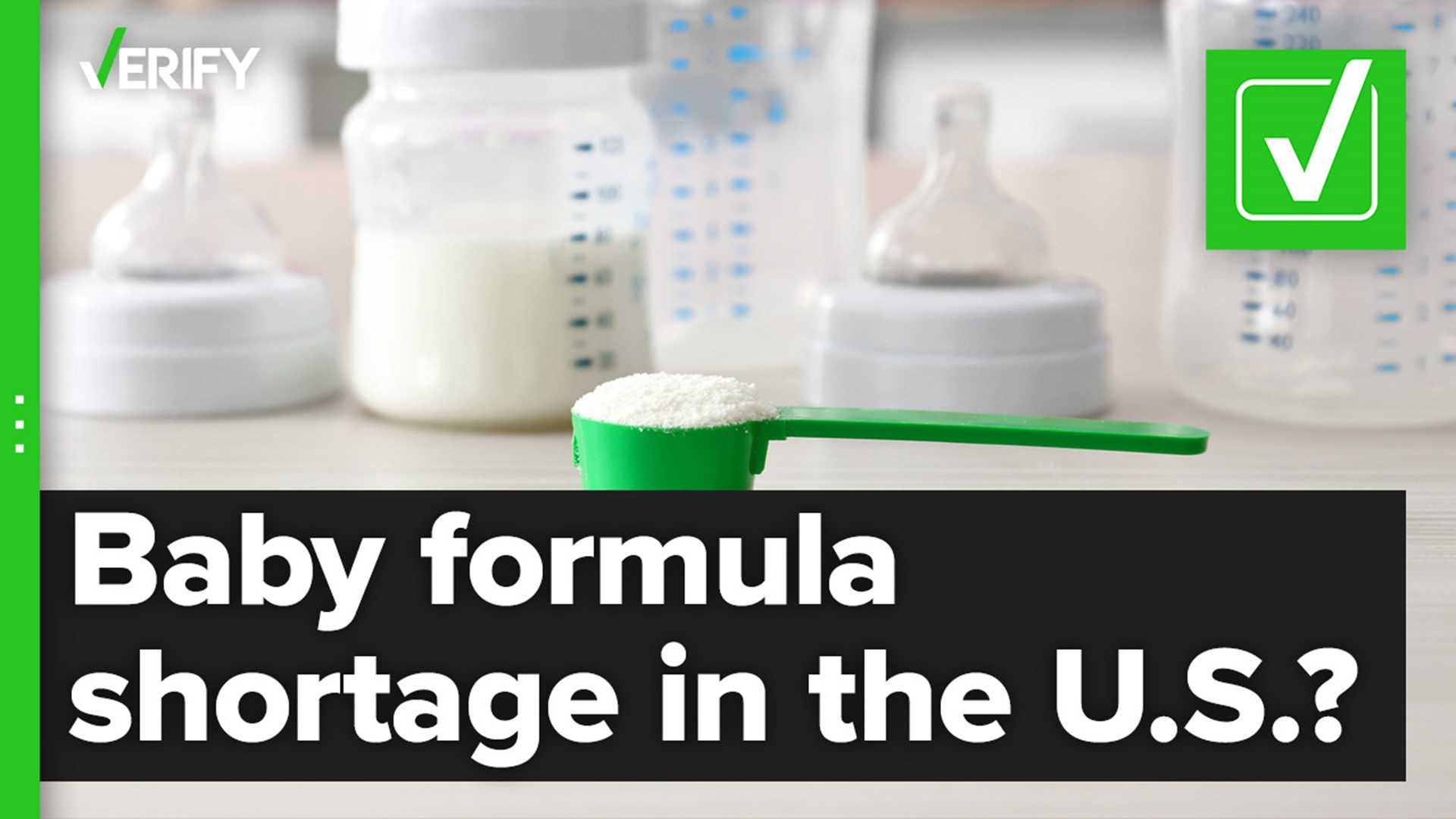WASHINGTON — The head of the Food and Drug Administration faced bipartisan fury from House lawmakers Wednesday over months of delays investigating problems at the nation's largest baby formula plant that prompted an ongoing shortage.
FDA Commissioner Robert Califf laid out a series of setbacks in congressional testimony that slowed his agency’s response, including a COVID-19 outbreak at the plant and a whistleblower complaint that didn’t reach FDA leadership because it was apparently lost in the mail.
Califf testified before a House subcommittee investigating the shortage, which has snowballed into a national political controversy and forced the U.S. military to begin airlifting supplies from Europe.
The shortage largely stems from Abbott’s Michigan plant, which the FDA shut down in February due to contamination issues. Under fire from Congress, parents and the media, Califf gave the first detailed account Wednesday of why his agency took months to inspect and shutter the plant despite learning of potential problems as early as September.
The FDA's response was: “Too slow and there were decisions that were suboptimal along the way,” Califf told lawmakers.
The FDA and President Joe Biden face mounting political pressure to explain why they didn’t intervene sooner to head off the supply crisis.
“Why did it take an onslaught of national media attention for the Biden administration to act with a sense of urgency required to address an infant formula shortage?” asked Rep. Morgan Griffith, R-Virginia, the committee's ranking Republican.
Califf said the agency had been trying to monitor formula supplies since 2020 when COVID-related disruptions first emerged, but regulators have limited visibility into company supply chains.
The House panel also heard from three formula manufacturers, including a top Abbott Nutrition executive who apologized to parents for the shortage.
“We let you down,” said Abbott vice president Christopher Calamari. “We are deeply sorry.”
Calamari repeatedly sidestepped questions about whether any employees were disciplined or fired over the problems at the plant, which included standing water, a leaky roof and damaged equipment.
FDA staff began honing in on Abbott's plant last fall while tracking several bacterial infections in infants who had consumed formula from the facility. The four cases occurred between September and January, causing hospitalizations and two deaths.
The FDA planned to begin inspecting the Sturgis, Michigan, plant on Dec. 30, according to Califf's testimony. But Abbott warned that about a dozen plant employees had tested positive for COVID-19 and requested a delay. As a result, the FDA didn't begin its inspection until Jan. 31.
After detecting positive samples of a rare-but-dangerous bacteria in multiple parts of the plant, the FDA closed the facility and Abbott announced a massive recall of its formula on Feb. 17.
“We knew that ceasing plant operations would create supply problems but we had no choice given the insanitary conditions,” said Califf, calling the problems “shocking” and “unacceptable.”
Abbott and the FDA have reached an agreement to reopen the plant next week, under which the company must regularly undergo outside safety audits.
Califf also struggled to explain delays in following up on a whistleblower complaint alleging numerous safety violations at Abbott’s plant, including employees falsifying records and failing to test formula before shipment.
Several FDA staffers reviewed the complaint in late October when it was sent to a regional FDA office, but an interview didn't take place until two months later, in part due to the whistleblower's scheduling conflicts.
Senior FDA officials eventually received the complaint via email, but not until February due to “an isolated failure in FDA’s mailroom, likely due to COVID-19 staffing issues,” according to the FDA testimony. A mailed copy addressed to then-acting commissioner Dr. Janet Woodcock has still not been located.
Political outrage over the shortage has landed squarely on the FDA and Califf, who was confirmed to the FDA role for a second time in February. The problems have escalated into a political firestorm for the White House, which has invoked the Defense Production Act and emergency import measures.
The FDA contacted the U.S. Department of Agriculture on Feb. 11. about a potential shortage, just days before Abbott's recall, according to FDA's timeline.
Califf said the FDA requested new authorities, funding and staff to track supply chain data that could have helped get ahead of the problem, but noted Congress has not provided them.
Several lawmakers raised longstanding concerns that the FDA’s food program — which oversees most U.S. foods except meat, poultry and eggs — is underfunded and needs restructuring.
The program has a convoluted leadership structure in which there is a director of FDA's Center for Food Safety and Applied Nutrition and a separate deputy commissioner for “food policy and response." The deputy commissioner has more of a safety focus, but has no direct authority over food center staff nor field staff who inspect company plants.
Both officials testified Wednesday, along with Califf.
When Rep. Nanette Diaz-Barragan, D-Calif., asked who is in charge of food safety, Califf and food center director Susan Mayne gave extended answers, describing different roles and responsibilities.
“I don’t think there’s one person that is responsible,” Diaz-Barragan responded. “I just think it goes to show there needs to be restructuring and it needs to be more clear who’s ultimately responsible.”
Later Wednesday afternoon, Abbott's Calamari told lawmakers his company plans to build extra capacity and redundancies into its supply chain to avoid future disruptions. He reiterated the company's point that the FDA has not drawn a direct link between the illnesses reported in infants and bacteria samples collected from its plant.
After the company restarts production next month it will be able to produce more formula than before the recall, he noted.
“We’re going to learn from this. We’re going to get better as a result of this," Calamari said.
Executives from Reckitt and Gerber also testified on their efforts to boost production.

